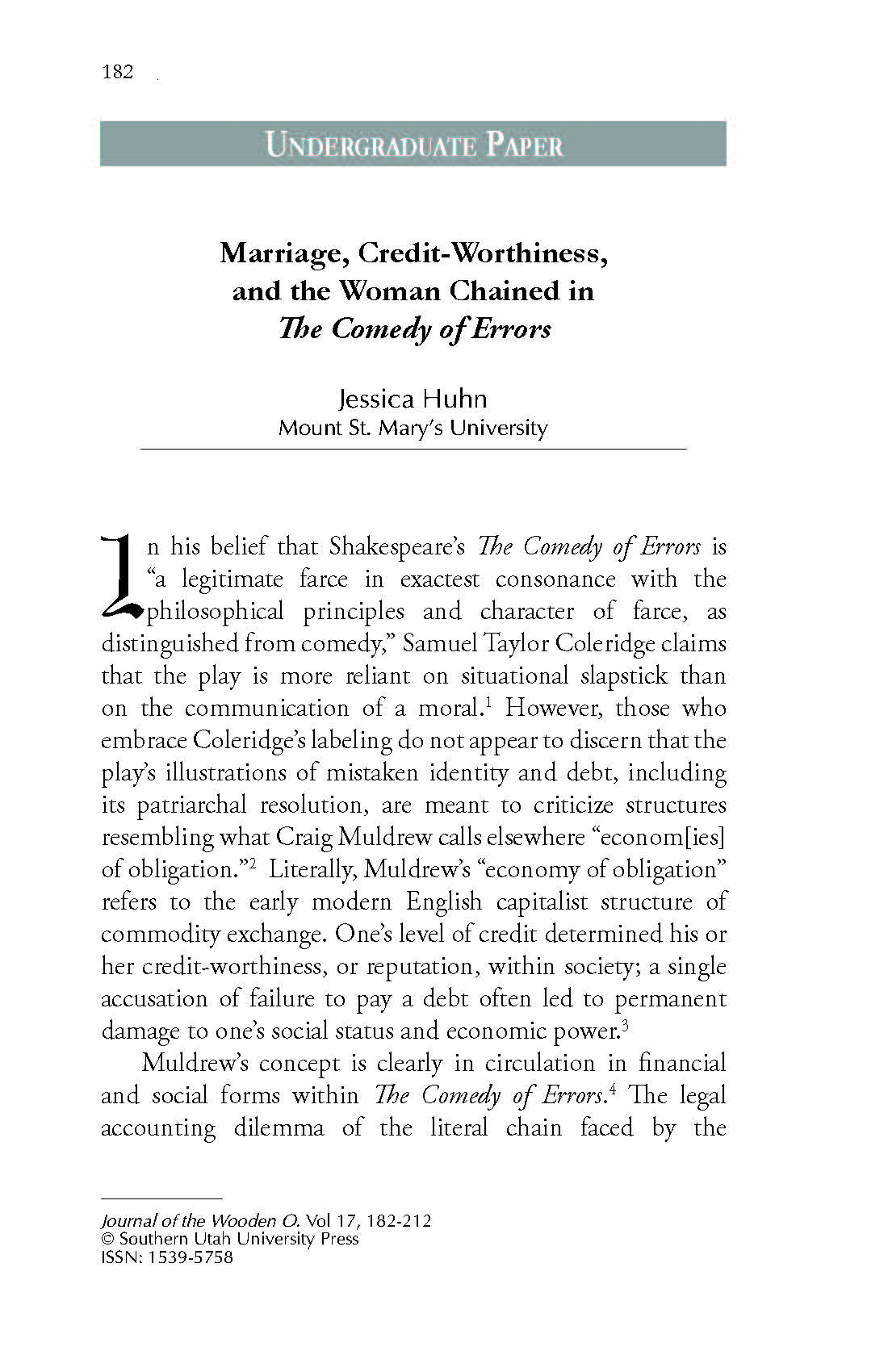Marriage, Credit-Worthiness, and the Woman Chained in The Comedy of Errors
Main Article Content
Abstract
In his belief that Shakespeare’s The Comedy of Errors is “a legitimate farce in exactest consonance with the philosophical principles and character of farce, as distinguished from comedy,” Samuel Taylor Coleridge claims that the play is more reliant on situational slapstick than on the communication of a moral.1 However, those who embrace Coleridge’s labeling do not appear to discern that the play’s illustrations of mistaken identity and debt, including its patriarchal resolution, are meant to criticize structures resembling what Craig Muldrew calls elsewhere “econom[ies] of obligation.”2 Literally, Muldrew’s “economy of obligation” refers to the early modern English capitalist structure of commodity exchange. One’s level of credit determined his or her credit-worthiness, or reputation, within society; a single accusation of failure to pay a debt often led to permanent damage to one’s social status and economic power.3
